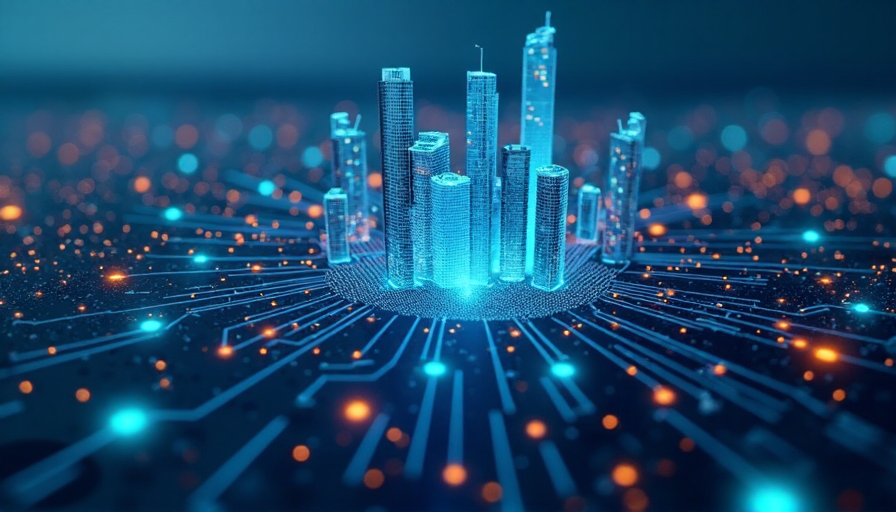
Job Opportunities in AI: Unleashing Future Possibilities
The Expanding AI Landscape
Recent trends in the AI industry have sparked a remarkable surge in job opportunities, driven by a market projected to grow from $150 billion in 2023 to over $1.3 trillion by 2030, according to MarketsandMarkets. In a single year, job postings seeking AI expertise skyrocketed by over 200% compared to 2022, with specialized areas like generative AI witnessing an unprecedented 450% uptick. These figures highlight a promising future for professionals aiming to thrive in a tech-driven world.
In-Demand AI Careers
As industries evolve, several key roles have emerged as vital components of the AI ecosystem. Here is an overview of some of the most exciting career paths within AI:
Machine Learning Engineer
Machine learning engineering remains one of the foundational roles in AI. Experts like PhD holder Marcin Chady describe the job as one that involves deep dives into statistics and linear algebra to develop and test learning models. Digital marketing specialist Ahmad Tayyab further explains that the role encompasses designing, preprocessing data, training models, and deploying them into practical applications.
Data Scientist
The massive influx of data has placed data scientists at the heart of AI development. These professionals use statistical methods and machine learning techniques to unpack complex datasets, enabling companies to make informed, data-driven decisions. Their role is essential in uncovering actionable insights that guide strategic business choices.
AI Research Scientist
Driving the frontier of innovation, AI research scientists experiment with cutting-edge algorithms and frameworks. Their work pushes the boundaries of current technology, opening up new possibilities for AI applications. This role is perfect for individuals passionate about pioneering new techniques and advancing the science of artificial intelligence.
AI Engineer
Bridging theory and real-world applications, AI engineers are tasked with embedding machine learning models into functional software and hardware systems. They play a critical role in ensuring that AI capabilities are effectively integrated into products, making the technology scalable and accessible.
Computer Vision Engineer
In an age where machines are taught to interpret visual data, computer vision engineers are key. Their work in developing algorithms for image and video recognition has applications ranging from self-driving cars to advanced medical imaging, ensuring safety and precision in various sectors.
Natural Language Processing Engineer
The growth of natural language processing (NLP) has launched a new wave of innovation in AI. NLP engineers focus on enabling machines to understand and generate human language. They work on exciting projects like translating languages, sentiment analysis, and building interactive chatbots that create a seamless human-AI interface.
Robotics Engineer
AI’s impact on robotics has led to significant advances in automation. Robotics engineers combine modern materials and electronics to create autonomous systems capable of complex tasks. Their contributions are critical in industries that rely on precision and minimal human intervention.
AI Product Manager
Blending technical know-how with strategic insight, AI product managers are essential in guiding the development of AI solutions from concept to launch. They balance user needs, technical challenges, and business objectives to shape products that meet market demands.
AI Ethicist
As the influence of AI grows, so does the need to address its ethical implications. AI ethicists are at the forefront of ensuring that technology is used responsibly. They focus on detecting bias, maintaining transparency, and protecting privacy while also shaping policies and standards.
Additional Roles
- Big Data Engineer: Specialists who build robust data infrastructures to support vast datasets essential for AI model training.
- AI Consultant: Advisors who guide organizations in seamlessly integrating AI into their operations.
- AI Trainer and Assessor: Professionals who prepare curated datasets and evaluate model performance to ensure fairness and accuracy.
- Virtual and Augmented Reality Developer: Developers creating immersive environments that combine AI with VR/AR to revolutionize industries like gaming and education.
- Cybersecurity Analyst: Experts safeguarding AI systems against vulnerabilities and cyber threats.
- AI Programmer in Video Games: Developers innovating in the entertainment field by enhancing how virtual characters interact with their environments.
Looking Ahead: Humans and Machines in Harmony
Despite frequent concerns about automation displacing human labor, experts emphasize the symbiotic relationship developing between human creativity and machine efficiency. AI may automate routine tasks, but it simultaneously fosters roles that demand creativity, critical thinking, and ethical judgment—areas where human intellect excels. As one expert poignantly stated, while AI continues to evolve based on statistical patterns, the irreplaceable complexity of human thought remains a core advantage.
The evolving AI job market is not only expanding but also diversifying, paving the way for professionals who are eager to embrace change, innovate, and drive the future of technology forward.
Note: This publication was rewritten using AI. The content was based on the original source linked above.